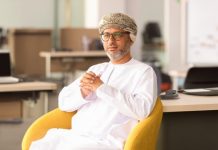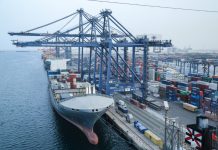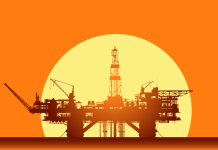Oman like any other country in the world has been hit hard by the Coronavirus. As the Sultanate is preparing for a future economy less reliant on oil, AI (Artificial Intelligence) is a very promising growth area.
UNESCO Country Strategy for the Sultanate of Oman 2019-2023 and its sustainable and enhanced economic growth and development initiatives is especially now an important initiative to prepare for a world post-COVID. Artificial Intelligence (AI) is driving the Fourth Industrial Revolution and the Coronavirus crisis might even fast forward Oman’s 2040 vision.
The COVID-19 outbreak is a human public health tragedy and has a growing impact on the global economy. The pandemic has led to recession, record numbers of unemployment and unprecedented debt levels globally.
According to United Nations data in 2020 and 2021 alone, developing countries’ repayments on their public external debt alone will soar to between $2.6 trillion and $3.4 trillion, just at a time when COVID-19 caused a global recession. The World Bank has predicted coronavirus is pushing 40-60 million people into extreme poverty. Calls for international solidarity have so far delivered little tangible support and the risk of country debt defaults and corporate bankruptcies is rising.
Countries need new economic growth models and Artificial Intelligence powered by 5G is increasingly at the forefront as countries, companies and individuals need to seriously think and prepare what’s next post COVID-19.
The Coronavirus recession is driving more adoption of new business models that are harnessed by AI. The most valuable companies in the world all use computational social science and over 80 per cent of the daily moves in U.S stocks are driven by AI machine-led algorithm trading.
The initial development of AI has already affected several niche areas dramatically, but it now seems to impact just about all parts of the economy, and indeed all aspects of our lives.
The unfortunate truth of the global Coronavirus pandemic and the A.I. evolution is that it impacts the most vulnerable people, the low skilled people in society and the poorest countries the most. As close to 40 million American have lost their jobs due to COVID-19, US companies that are on the cutting edge of AI are only growing ever more powerful.
In the global equity market, the leadership is U.S. equities and within this large cap US tech and the so-called FAANG stocks. The 5 most valuable companies in the world are increasingly all AI companies. Apple, Microsoft, Alphabet (Goggle) Amazon and Facebook. In China, it is the same situation, BAIDU, Tencent and Alibaba are all AI companies. Alibaba and Tencent in terms of market capitalization are the most valuable China domiciled companies and both are cutting edge AI companies.
Russia’s YANDEX with $13.18 billion market cap is one of the largest and most promising local Russian companies and is foremost an AI company now. Sberbank and its CEO Herman Gref stated its stock price should be valued more like a Tech / A.I. company. Banks by definition have a lot of customer data but many are still not using nor harnessing this data enough. Deep learning and AI can transform this.
South Korea was hard hit by the early COVID-19 outbreak but now seems to be seen globally as one of the successful role models on how best to fight a pandemic. The country is also now making 5G and A.I. the centrepieces of economy’s ‘New Deal’ in post-coronavirus era. In a post COVID-19 world where Data is the new oil, AI is the new electricity.
Every time there is a major technological disruption such as of AI it gives us a chance to remake the world. AI and machine learning is a very advanced technology, yes affecting both developed economies and developing economies. The advice to developing economies is to focus on AI to strengthen a country’s vertical industries and invest in education because AI is still so immature.
In a new world of work, learning to effectively judge what machines can and cannot do, as well as what they should and should not do, will be a critical capability for workers in the future. In return, human strengths and capabilities will need to be integrated into AI systems to help workers partner more collaboratively with them.
Oman’s Ministry of Technology and Communications (MTC), Gulf Business Machines (GBM) and The Research Council (TRC) have recently signed a Memorandum of Understanding to implement the Artificial Intelligence projects within the Smart City Platform which is a step in the right direction.
Bill Gates was one of the few public voices warning not to be complacent about the risk of a pandemic. Gates also stated that “a breakthrough in machine learning would be worth 10 Microsofts.”
There’s still plenty of opportunity for every nation, company and individual to learn more about AI and to prepare but complacency about AI like complacency about Coronavirus could be a deadly mistake.






